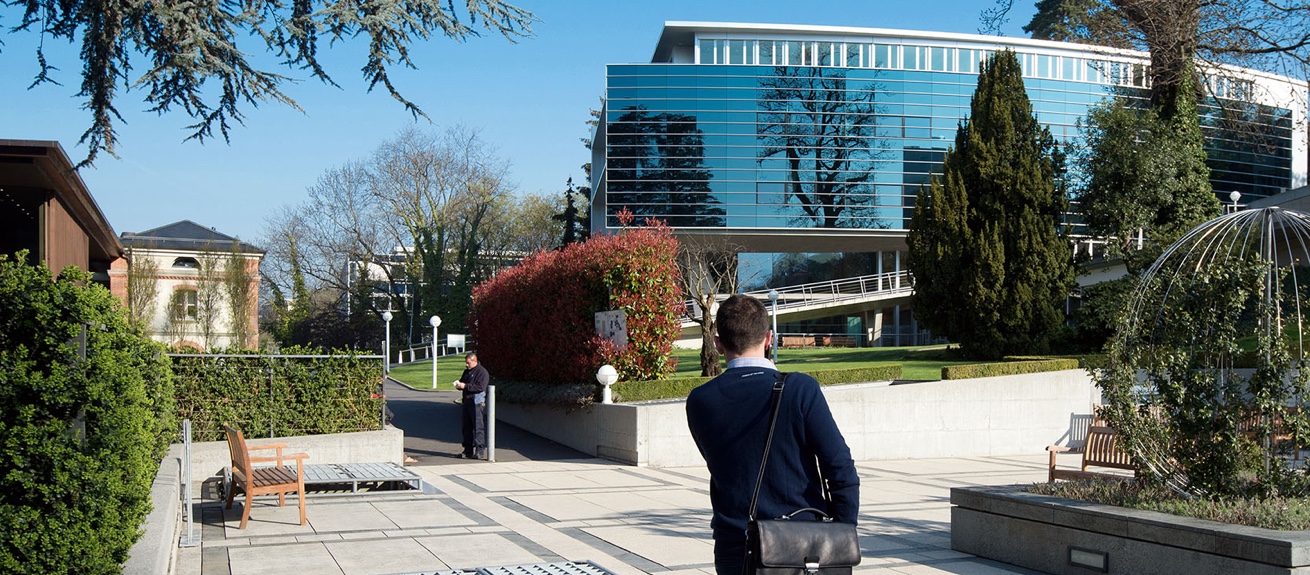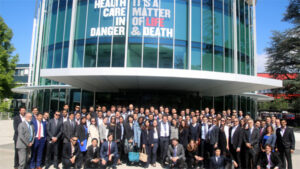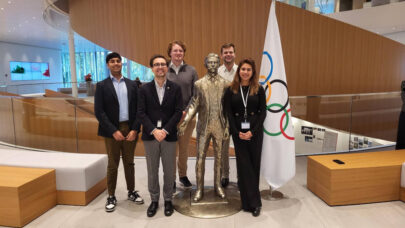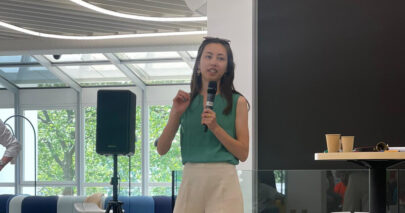
A swarm of well-dressed bright minds from IMD recently flooded the premises of the International Committee of the Red Cross (ICRC) headquarters in Geneva. It was not any swarm though, this was IMD Business School’s MBA class of 2016, chaperoned by none other than Professor Carlos Braga, Visiting Professor at IMD. This visit is part of the long-standing collaboration between ICRC and IMD, particularly around the Global Partnerships for Humanitarian Impact and Innovation process, in which Prof Braga played an instrumental role. Roughly 90 incredibly smart and talented individuals from all over the world and all professional horizons went to listen to ICRC’s President, Peter Maurer, talk about the state of the world and the growing importance for the humanitarian, private and civil sectors to connect more and better.
Peter Maurer insisted on the unquestionable importance of innovation and collaboration. He nevertheless also discussed the ICRC’s (and the larger humanitarian sector’s) great crux: the scaling up of innovations – an essential step in the innovation process to guarantee their proper introduction into operations. He expressed the need for humanitarians to learn how to speak “business” in order for the private sector to understand their needs and for both sectors to find areas of shared interest. He touched upon two concrete examples where collaboration is needed: First, to better assist the all too many in need of prosthetics and orthotics in conflict settings; second, to help the ICRC diversify its donor base and explore different financial products in order to cover its 50% budget increase.
Similarly to his contribution in the report published recently by the World Economic Forum’s Global Agenda Council on Fragility, Violence and Conflict, Peter Maurer stressed the necessity for all to understand the factors that cause fragility, violence and conflict in order to develop meaningful and systemic solutions. And given that instability and violence are bad for business, the responsibility to reduce fragility should not only be a humanitarian imperative and cannot only rely on humanitarian actors.
The MBA participants did not hesitate to pick the President’s brain on issues such as the rise of automated warfare and the consequences it has on the application of International Humanitarian Law, or the perception of Western bias that can stem from the Red Cross emblem and how to navigate the impact this can have on operations for the ICRC and the rest of the Red Cross and Red Crescent Movement.
Collaborations like the one between ICRC and IMD must be encouraged as they are truly transformative, both for the humanitarian and private sectors. They allow us to explore areas of synergies and build essential bridges, based on shared-value, that relieve the suffering of those affected by conflict, and in parallel contribute to re-building and/or strengthening the socio-economic fabric, locally, regionally and globally.
IMD’s MBA class also recently met with watch-making legend Jean-Claude Biver and Nestlé CEO Paul Bulcke.




